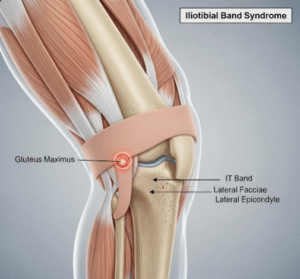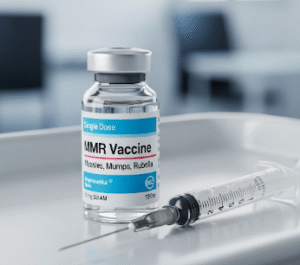Overview
Feeling worthless is a psychological symptom characterized by persistent thoughts of inadequacy, low self-esteem, and diminished self-worth. It can affect emotional well-being, relationships, work performance, and daily functioning. In Korea, mental health clinics, counseling centers, and hospitals provide comprehensive evaluation, therapy, and treatment for individuals experiencing feelings of worthlessness.
Key Facts
▶ Prevalence: Common in individuals with depression, anxiety, trauma, or chronic stress; can affect all ages.
▶ Causes: Mental health disorders, life stressors, trauma, chronic illness, or social isolation.
▶ Associated Symptoms: Low mood, hopelessness, fatigue, social withdrawal, and self-critical thoughts.
▶ Treatment Options in Korea: Counseling, cognitive behavioral therapy (CBT), medications, mindfulness programs, and support groups.
▶ Urgency: Persistent feelings of worthlessness may indicate major depression or other psychiatric conditions and require professional evaluation.
What is Feeling Worthless?
Feeling worthless involves a persistent perception that one’s existence, efforts, or value is insignificant. It is not simply a momentary emotion but a chronic cognitive and emotional state that can impact mental and physical health.
▶ Emotional Symptoms: Sadness, hopelessness, guilt, or shame.
▶ Cognitive Symptoms: Negative self-talk, rumination, and distorted thinking patterns.
▶ Behavioral Symptoms: Social withdrawal, reduced productivity, and neglect of self-care.
▶ Physical Symptoms: Fatigue, sleep disturbances, or appetite changes.
Note: Recognizing feelings of worthlessness early is crucial for timely intervention and prevention of worsening mental health.
What Symptoms Are Related to Feeling Worthless?
▶ Persistent Sadness: Feeling empty, down, or unmotivated.
▶ Self-Criticism: Harsh evaluation of one’s abilities or appearance.
▶ Hopelessness: Belief that life or circumstances will not improve.
▶ Fatigue or Low Energy: Difficulty performing daily tasks.
▶ Social Withdrawal: Avoiding friends, family, or social activities.
▶ Sleep Problems: Insomnia, oversleeping, or disrupted sleep patterns.
▶ Appetite Changes: Overeating or loss of appetite.
▶ Thoughts of Self-Harm: Severe feelings of worthlessness may lead to suicidal ideation.
What Causes / Possible Causes
Feeling worthless can result from mental, emotional, or social factors:
▶ Depression: Major depressive disorder is a leading cause of persistent worthlessness.
▶ Anxiety Disorders: Chronic worry or stress can exacerbate self-critical thoughts.
▶ Trauma or Abuse: Emotional, physical, or sexual abuse can lead to long-term low self-worth.
▶ Chronic Illness: Persistent medical conditions affecting quality of life.
▶ Social Isolation: Loneliness, lack of support, or marginalization.
▶ Negative Life Events: Job loss, academic failure, relationship breakdowns, or financial hardship.
▶ Cognitive Distortions: Unrealistic self-expectations or perfectionism.
▶ Substance Abuse: Alcohol or drugs may intensify feelings of worthlessness.
Note: Understanding the root cause is essential for effective therapy and emotional recovery.
When Should I See a Doctor?
▶ Persistent Negative Thoughts: Lasting more than two weeks and impacting daily functioning.
▶ Severe Emotional Distress: Difficulty coping with everyday life.
▶ Social Withdrawal: Avoidance of family, friends, or activities once enjoyed.
▶ Sleep or Appetite Changes: Significant disruptions affecting health.
▶ Self-Harm or Suicidal Thoughts: Immediate professional intervention is required.
▶ Chronic Mental Health Conditions: Depression, anxiety, or trauma history needing specialized care.
▶ Children or Adolescents: Early intervention for self-esteem issues or bullying-related distress.
Tip: Korean mental health clinics provide comprehensive psychological assessment, therapy, and medication management to address feelings of worthlessness.
Care and Treatment
Treatment depends on underlying causes, severity, and individual needs:
▶ Cognitive Behavioral Therapy (CBT): Helps reframe negative thought patterns and build self-worth.
▶ Counseling and Psychotherapy: Provides emotional support, coping strategies, and problem-solving skills.
▶ Medications: Antidepressants, anti-anxiety medications, or mood stabilizers prescribed by psychiatrists.
▶ Mindfulness and Relaxation Techniques: Meditation, yoga, or breathing exercises to reduce stress and negative thinking.
▶ Support Groups: Peer support for sharing experiences and reducing isolation.
▶ Lifestyle Adjustments: Regular exercise, balanced diet, adequate sleep, and engaging in meaningful activities.
▶ Monitoring: Regular check-ins with mental health professionals to track progress.
▶ Education: Learning about cognitive distortions, emotional regulation, and self-compassion techniques.
Treatment Options in Korea
Medical Evaluation:
▶ Psychological Assessment: Screening for depression, anxiety, trauma, or other psychiatric conditions.
▶ Laboratory Tests: To rule out underlying medical conditions contributing to fatigue or mood changes.
▶ Specialist Consultation: Psychiatrists, clinical psychologists, and counselors collaborate to create personalized treatment plans.
▶ Child and Adolescent Services: Early intervention programs for school-aged children or teenagers.
Advanced Therapies:
▶ Structured CBT Programs: Intensive therapy for chronic depression or low self-esteem.
▶ Pharmacotherapy: Antidepressants or anxiolytics tailored to individual needs.
▶ Mindfulness-Based Cognitive Therapy (MBCT): Reduces rumination and promotes emotional balance.
▶ Multidisciplinary Care: Combines psychotherapy, psychiatric management, and lifestyle coaching for holistic recovery.
Rehabilitation & Support:
▶ Patient Education: Coping mechanisms, self-care routines, and building resilience.
▶ Follow-Up Care: Ensures treatment effectiveness and prevention of relapse.
▶ Specialist Clinics: Korean hospitals provide integrated mental health services combining therapy, medication, and supportive interventions.
Outcome: With early recognition and comprehensive treatment in Korea, feelings of worthlessness can be effectively managed, improving self-esteem, emotional stability, and overall quality of life.












